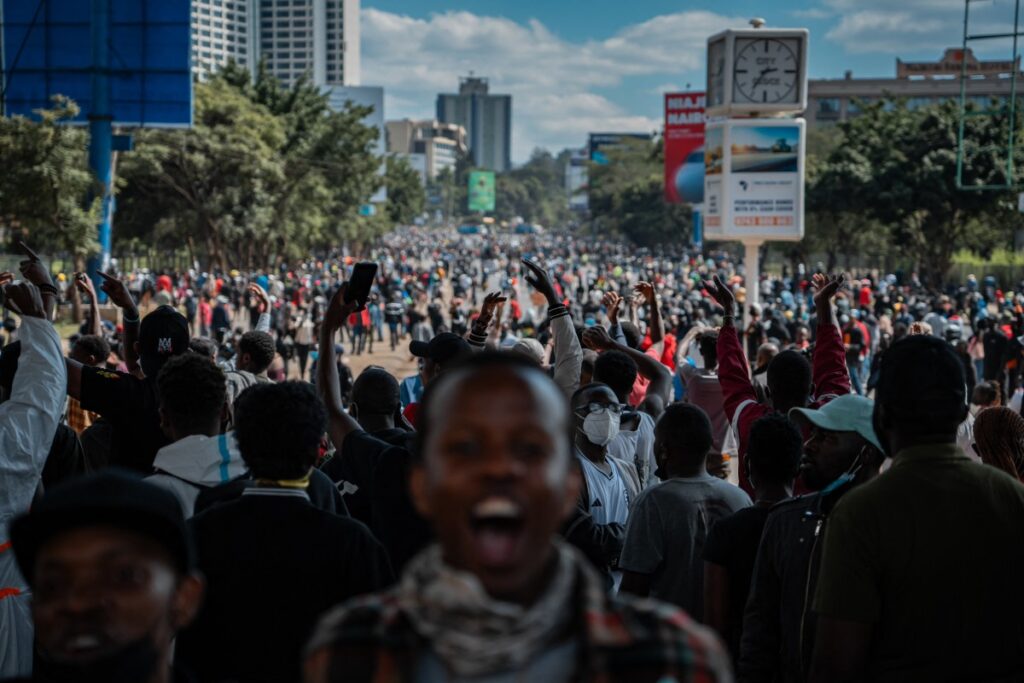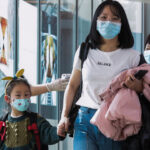
The most significant tenet posed by contemporary biotechnology is the possibility that it will alter human nature and thereby move us into “post human” stage of history—Francis Fukuyama
This instalment reflects on COVID-19, biotechnology, bioweapons, and the human race. In his 2002 book titled: “Our post human future; consequences of the biotechnology revolution” published by Profile Books Limited, Frances Fukuyama warned about the danger that biotechnology poses to the human species. According to him, “Human nature exists, is a meaningful concept, and has provided a stable continuity to our experience as a species”. Given this fact, he urged: “We need to start thinking concretely now about how to build institutions that can discriminate between good and bad uses of biotechnology and effectively enforce these rules both nationally and internationally”. For effect, he imagined a scenario, that is, “If wealthy parents suddenly have open to them, the opportunity to increase the intelligence of their children as well as that of their subsequent descendants, then we have the makings not just of a moral dilemma but of a full scale class war”.
However, with the unsolved origin of the COVID-19, and the quest for solutions in the form of a silver bullet that is a vaccine, biotechnology has taken us to the pedestal of post-human history. Long before the outbreak of COVID-19, a report from Cambridge University’s Centre for the Study of Existential Risk (CSER) pointed to the future threats of bioweapons that would be enabled by Artificial Intelligence (AI) and genetic manipulation. The report added a frightening dimension that bioweapons could target specific DNA of some races to the exclusion of others. According to the International Peace Bureau, a biological weapon is “any infectious agent, such as bacteria, virus or toxin, which is used intentionally to inflict bodily harm to people, animals or nature. They can be used to cause massive casualties, social disruption, economic losses, and environmental problems as a means of warfare or terrorism. Biological weapons are difficult to handle after release because they are infectious agents that spread uncontrollably beyond the target area.” COVID-19 fits the above-mentioned substantiation even while the controversy rages as to whether the origin of COVID-19 is natural, manmade, or accidental.
Also worthy of reflection is the connection of the present pandemic to the goal of capital on a global scale. In the global competition for survival under market capitalism, COVID-19 and its profile seem to march the prescription in Susan George’s The Lugarno Report: On Preserving Capitalism in the Twenty-first Century, with an Appendix and Afterword. Against the premise of capitalism’s desperate quest for realisation, “the market, at its broadest and most inclusive, is the closest we are likely to come to the wisdom of the Almighty.” Therefore, its preservation becomes a categorical imperative.
Claudio Schuftan in his review of The Lugano Report gave a sense of the scale of the crisis of capitalism captured by George to the effect that “You simply can’t have a global economy which enriches the few beyond any historical parallel and creates losers by the tens of millions”. Further paraphrasing her, he noted that “The resulting losers are invariably destabilizing for the System. Employment and satisfaction of human needs – as opposed to the needs of the Market itself – are incidental to the Global System which obeys the logic of supply and demand, NOT of want (need) and fulfillment.” This is true with capitalism’s creative destruction at its uppermost. Again, Schuftan noted that “The bottom line, we are told, is that we cannot both sustain the liberal Free Market System and simultaneously continue to tolerate the presence of ‘superfluous millions’. The only way to guarantee the happiness and wellbeing of the majority is for the total population of the planet to be proportionally smaller. Therefore, a fierce Population Reduction and a Reproductive Inhibition strategy are an economic, a social, and an ecological imperative – AND they are perfectly defensible from an ethical point of view at this historical conjuncture”. Those in opposition to this solution are to be discredited at all costs.
Edwin Madunagu, a public intellectual and mathematician, who also reviewed The Lugano Report in the context of the prevailing pandemic in several Nigerian newspapers in April 2020 expressed his belief that “beyond the struggle to defeat and survive the COVID-19 pandemic, the primary task now – as important as it is – is not to determine who, in particular, is responsible for the calamity or whether it was a deliberate human act, a human accident or a natural occurrence.” Like George who called for power to overrule the capitalist predators and misogynists, Madunagu noted that “Humanity will survive this pandemic as it survived others before it. But the Left and all anti-capitalist forces should determine that global capitalism, together with its regional and national segments, will not be allowed to reconstitute its pre-pandemic political hegemony when all this is over”. He further noted that “The task before the global Left and the Nigerian Left is to become more conscious of how doubly endangered humanity as a whole and its segments – including Nigeria – have become under global capitalism. Humanity’s double tragedy is that the global social forces responsible for this tragedy are also the selfish and corrupt forces in power and directing the solution!”
More intriguing is the vaccine solution. In their essay, titled “Recombinant vaccines for COVID-19” published in Hum Vaccin Immunother, 2020, Tushar Yadav et al argued that “Messenger RNA (mRNA)-based CoV vaccines are considered to be more advantageous than DNA-based vaccines since they do not require entry into the host cell nucleus to be transcribed. Therefore, a lower dose can be used, without the need for any special delivery mechanisms. Moreover, mRNA-based vaccines avoid the risk of integration with the host cell genome and are able to produce pure viral protein. The technology associated with this vaccine is also capable of bypassing time-consuming standardization processes, thus speeding up its commercial production”.
While the above summary is the mainstream position, Robert Kennedy Jnr., Carrie Madej, Romeo Quijano, and F. William Engdahl present a different point of view. Although we have adverted to them in Part 35 of this serial, they bear repeating here. Dr. Kennedy Jnr. warned that that “the so-called last generation mRNA vaccines intervene directly in the genetic material of the patient and therefore alter the individual genetic material, which represents the genetic manipulation, something that was already forbidden and until then considered criminal. This intervention can be compared to genetically manipulated food, which is also highly controversial. Even if the media and politicians currently trivialize the problem and even stupidly call for a new type of vaccine to return to normality, this vaccination is problematic in terms of health, morality and ethics, and also in terms of genetic damage that, unlike the damage caused by previous vaccines, will be irreversible and irreparable”. Dr. Madej who began her career in vaccine research in her early 20s said she never witnessed the technology being used on the COVID-19.
For the reason that it would involve modified RNA or DNA, it could potentially change the human genome and therefore takes us into Fukuyama’s post-human stage of history (see Part 35 of this serial). Jack Goodman and Flora Carmichael of BBC Reality Check noted that her assertions were false. It is all a battle of the mind.
Dr. Quijano, a retired Pilipino Professor of Pharmacology and Toxicology has also pointed to the dangers of experimental gene editing when applied to human vaccines. One, it could enhance the pathogenicity of the virus in ways more aggressive and could prove disastrous in human trials. Two, “Exogenous mRNA is inherently immune-stimulatory, and this feature of mRNA could be beneficial or detrimental. He stressed further that “The paradoxical effects of innate immune sensing on different formats of mRNA vaccines are incompletely understood.” Engdahl, a strategic risk consultant and a Research Associate of the Centre for Research on Globalization and author of “Seeds of Destruction: Hidden Agenda of Genetic Manipulation” argued that the Pfizer vaccine is based on “experimental technology known as gene editing, specifically mRNA gene-editing, something without precedent and that is prone to lack of precision.
There is the need to heed the admonition of Des Browne, a former UK Defence Secretary and Professor Lord Martin Rees, Astronomer Royal and co-founder of CSER. Both urged responsibility on the part of governments to appreciate the global catastrophic risks and to act to avert them. Professor Rees said pointedly, that “Governments have a responsibility to act, both to minimise the risk of such events, and to make plans to cope with a catastrophe if it occurred…And those that take the initiative will set a positive example for the rest of the world. Protect your citizens and be a world leader – that decision is available to every country.” It is our collective responsibility to save our world from the forces that seek to destroy it.
Dear readers, next week this diary will come to an end. I will merely paint the colour of the future trends on this subject that has seized our imagination since December 2019. The diary, hopefully, will be published in a book form. Thank you for staying tuned.
Akhaine is a Professor of Political Science at the Lagos State University.













